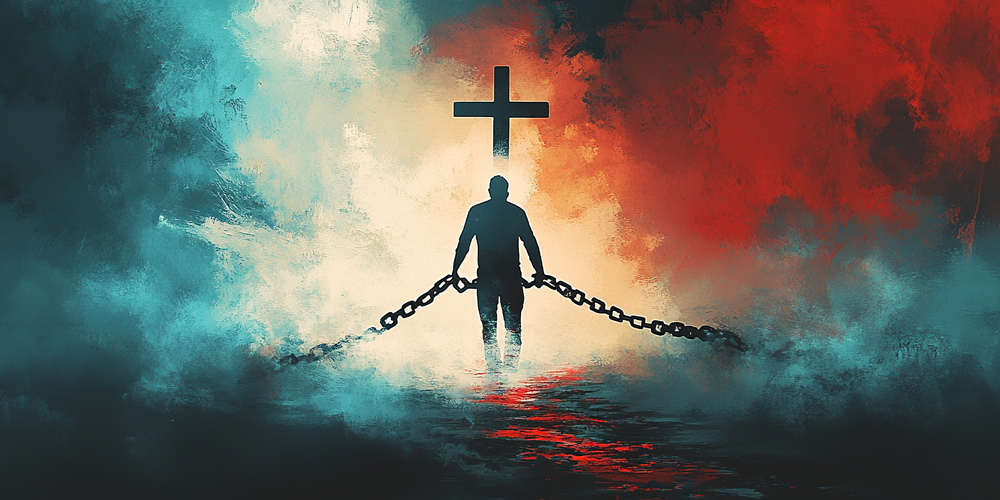By Bishop Kaye Kolde and Bishop Emeritus David W. Kendall
In recent years, the debates regarding women in leadership of the church have intensified in some streams of Christianity. These voices — when amplified by online preaching and teaching, along with popular podcasts and social media — have created even deeper divides within the larger evangelical church in the United States. The camps on “either side” seem more entrenched than ever before. Although the Free Methodist Church has articulated an understanding of Scripture that affirms women in ministry and their ordination long before the current debates, we recognize our need to continue pursuing this scriptural position as a reality in practice. We have a unique history, values and voice to bring to the larger church as we seek to see the fullness of the gospel witnessed by the church in our generation and cultural context.
_
“One of our most cherished values is to center ourselves on God-given revelation from the Scriptures.”
_
Our Wesleyan theological tradition emphasizes the middle way, and we carefully and faithfully look to the Word of God and the Holy Spirit to lead us in truth rather than a theological liberalism or fundamentalism. One of our most cherished values is to center ourselves on God-given revelation from the Scriptures. We reject an assumption commonly made that affirmation of women in church leadership requires a disregard for Scripture. In fact, we base our understanding of the roles and responsibilities of women in the church upon the historical redemptive story throughout the whole of the Scriptures, and seek to understand every passage in its literary, cultural and social contexts.
At Creation
Humans, both male and female, were created in the image of God and given authority together to rule over the earth (Genesis 1:26–30). The Lord determined it was not good for the man to be alone, and thus created the woman to be his ezer kenegdo (Genesis 2:18). The King James Version of this Hebrew phrase was translated as “helpmeet” and often understood as a kind of “assistant” to the man, which would suggest a subordinate role for the woman.
But that is not what this phrase implies. The word “ezer” does not connote a “subservient assistant” in the Hebrew Scriptures. In more than 20 usages, it describes or names God whose “help” the people need. Thus, “ezer” denotes the necessary strength for humanity to prevail. Additionally, though “kenegdo” has often been rendered as “suitable” in many translations, it expresses the relationship of being “face to face,” matching or corresponding. It expresses equivalency.
This understanding is confirmed by the man who exclaims: “This one is bone from my bone, and flesh from my flesh! She will be called ‘woman,’ because she was taken from ‘man.’” (Genesis 2:23 NLT). After the fall and entrance of sin into the world, however, this relationship between the man and the woman suffered corruption. Human disobedience distorted the original co-regency of the man and the woman in governing the world together (Genesis 1:26–30). As a result, men ruled over women, and women desired to control men (Genesis 3:16). From the Scripture’s portrayal of God’s original design for humanity and the corruption of that design by sin, we conclude that the subordination of women to men is a consequence of sin and its corrupting impact on humanity. Further, God’s redemption through Christ, which brings new creation to humanity (2 Corinthians 5:17), envisions a restoration of humanity and the way men and women relate to one another (Galatians 3:28). Such restoration undergirds the concept of mutuality in Christian marriage and the leadership of women whom God calls and equips within the church.
_
“From the biblical record of God’s people, we see the Lord using women as spiritual leaders with power.”
_
In the Old Testament
While women had little opportunity to wield authority in the ancient world of the Israelites, the Lord called and empowered women to be leaders of His people. Miriam (Exodus 15:20) was a prophet whose words are recorded in Scripture. Deborah (Judges 4:4–5) was a prophet and a judge with the authority to decide disputes among the people, both men and women. She also gave direction to the military leader of Israel, Barak (Judges 4:9–13). Huldah was a prophet who was sought out by male priests and prophets on behalf of King Josiah, and she gave them spiritual instruction leading to revival in Israel (2 Kings 22:14–20). From the biblical record of God’s people, we see the Lord using women as spiritual leaders with power. Even if they were exceptional, they were not disqualified on the basis of their gender.
In the Ministry of Jesus
Jesus traveled with and taught women who considered Him their rabbi (Luke 10:39, John 20:16). In John’s gospel, the Samaritan woman at the well was the first to hear and then proclaim the good news that Jesus is Messiah to her village (John 4:25–28). He healed and delivered women who became faithful disciples along with the men (Luke 8:1–3), and He intentionally commissioned women as the first witnesses of the resurrection and sent them to preach the good news to their brothers (John 20:17–18, Matthew 28:8-10). Women were equipped and sent just as the men were to be ministers of the gospel, and not only to other women or younger children.
In the Early Church
On the day of Pentecost, men and women were gathered in prayer when the Holy Spirit fell on all who were present and enabled them to speak in other tongues (Acts 2:1–3). This gift of the Spirit was a fulfillment of Joel’s prophecy (Joel 2:28–29) for all believers, and is the power that enables us to be a witness for Jesus Christ (Acts 1:8). We have evidence of women who were leaders among the early church in the book of Acts, such as Priscilla teaching Apollos, a learned man knowledgeable in the Scriptures (Acts 18:24–26), or Lydia, who had the first church in Philippi in her home (Acts 16:14–15). In Paul’s letters, he lists many names of women who were co-laborers with him in the church and refers to Junia as one who is outstanding among the apostles (Romans 16:7).
_
“The Pauline letters present an overarching picture of the power of the gospel to reconcile humanity to God and make one new humanity.”
_
The verses that are most often cited to prohibit women from leading equally in the church are found in Paul’s letters. However, Paul also honored women as ministers and declared that in Christ there is neither male nor female (Galatians 3:28). In 1 Corinthians, Paul gave instruction about the spiritual gifts and ministry given to “each one” by the Spirit as He determines, without regard to any male or female distinction, for the common good (1 Corinthians 12:4–11). The Pauline letters present an overarching picture of the power of the gospel to reconcile humanity to God and make one new humanity. This new humanity is synonymous with His new covenant people, the church. In the church, the relationships between men and women are to be redeemed rather than remain fallen so that they can once again image God to the world and work side by side with authority and in partnership for the sake of the gospel.
What About Those Contrary Commands?
Two passages in particular offer instructions to women that contradict what we see throughout the whole biblical story. To begin, in his letter to the Corinthians, the Apostle Paul tells “the women” to be silent during worship times, because it is impermissible for them to speak; they must submit themselves as the law says. If they wish to learn, however, let them ask questions of their own husbands at home, because it is shameful for “such a woman” to speak in the church’s worship gatherings (1 Corinthians 14:34–35).
But is Paul here laying down the law for all women, in all places, times and circumstances? Or is he addressing certain women who were disruptive and out of order during the church’s worship gatherings? We conclude it is the latter for several reasons.
First, we know Paul is responding in this letter to questions and special issues the church has brought to Paul’s attention (see 7:1; 12:1).
Second, the worship gatherings of the Corinthians were disorderly and chaotic, and at the heart of the disorder was improper and unhelpful speaking (see all of Chapter 14).
Third, we know that some women did speak during the worship times as they prayed. Paul makes this clear in 1 Corinthians 11. There he stresses how women should pray during worship, with appropriate covering upon their heads. This shows that women did in fact speak, and Paul approved this when done in culturally appropriate ways. As we noted earlier, Paul lists gifts of the Holy Spirit that were given to all members of the church body, some of which required speaking (see 1 Corinthians 12:7–11, 27–30; Ephesians 4:7, 11–12). Since all members receive gifts, we conclude some women had speaking gifts, especially when there is no indication that any gift was only for men.
Fourth, we know that in the early church from Pentecost onward women spoke in worship as the Spirit gave them ability (see Acts 2:1–4, 14–18).
Fifth, our survey of the entire biblical story convinces us that the Lord of the church calls some women to speak and share His truth, just as He calls some men. Therefore, we conclude, Paul is addressing a specific situation in Corinth where the women in question were out of order.
1 Timothy 2:10–15 is the second passage where Paul limits the participation of women in the church. Specifically, he insists that a woman must learn in all submission, that he does not permit a woman to teach or to exercise authority over a man but rather to be quiet or remain in silence. Then, Paul supports this by citing the example of Eve who was created after Adam, was deceived, and then led humanity into transgression.
Again, however, for several reasons we believe Paul is addressing another specific situation where some women acted inappropriately. First, Paul encourages even these women to learn, yet insists they must do so in quietness or silence and submission.
Second, Paul’s command for these women to be silent (v. 11, 12) is the very same command he gives to the whole church, men no less than women. In 1 Timothy 2:1–2, Paul commands the church to pray for all people and especially for the king and all who have authority so that “we may live tranquil and quiet lives” (v. 2). In this context, “quiet” conveys more than silence as in not speaking; it includes a peaceable demeanor that will help others to understand the truth and be saved (v. 4). In other words, what the women in question were doing compromised the church’s witness and frustrated the prayers Paul wished them to pray.
_
“Paul is speaking directly to the false teaching associated with the women who were out of order in the church.”
_
Third, the verb Paul uses in v. 12 does not refer to authority or leadership function. It is an extremely rare verb, used only here in the New Testament. It is not one of several verbs commonly used in expressing authority. Notably, it is not the word Paul has just used to express the authority of the king and governing officials in v. 2. Wherever this rare word appears outside the New Testament, it conveys the sense of domineering or usurping control over another, the kind of behavior for which Paul would also rebuke men. Paul’s point is not that no women should have authority over any man. Rather, Paul insists no woman can be permitted to dominate and be controlling in relation to men, of which some women were guilty.
Finally, Paul’s appeal to creation in v. 13–15 (especially v. 15) raises questions for all interpreters. Most likely, Paul is speaking directly to the false teaching associated with the women who were out of order in the church. The main point is that Eve was the one deceived (see Genesis 3:13), and this fact provides a biblical example of a woman speaking without knowledge just as certain women in Ephesus who were not qualified to speak in the church. We note that Paul does not describe the fall of humanity in such terms elsewhere (see Romans 5:12–21; 1 Corinthians 15:21–22). In fact, in those other, more extensive teachings, it is Adam who bears primary responsibility. Paul’s unusual focus on Eve here, we believe, is specific to the correction he brings to certain women who had been deceived and were leading others astray within the church.[1]
There can be no doubt that Paul corrected and limited women who were out of order in these churches but not because they were women. Rather, they were out of line, and their behavior was not to be allowed. We are convinced such an understanding of these passages makes the best sense within the whole biblical story’s focus on God’s redemption through Jesus, the place of women in the ministry of Jesus, and the well-attested practices of women in the earliest churches that we find in the New Testament.
+
[1] All interpreters find v. 15 challenging. Paul is not suggesting that “salvation” comes to women through giving birth. This would directly contradict what Paul writes in Chapter 1 (see 1 Timothy 1:15–16; compare 2 Timothy 1:9–10). We understand v. 15 to address a detail of the false teaching of some women that, though unclear to us, offers the correction Timothy needed from Paul.

Bishop Kaye Kolde was elected to the Free Methodist Church USA Board of Bishops in 2023 after serving since 2019 as the lead pastor of The Arbor Church in Spring Arbor, Michigan. She has enjoyed coaching for discipleship systems and previously served as the executive pastor of ministry and in other pastoral roles at Sage Hills Church in Wenatchee, Washington. She is married to Dr. David Kolde, and they are the parents of a son, Gray, and a daughter, Emi.

Bishop Emeritus David W. Kendall, Ph.D., is a member of the Study Commission on Doctrine. He served in the office of Free Methodist bishop from 2005 to 2019. He is the author of “Questions Raised by the Story,” “God’s Call to Be Like Jesus,” “Follow Her Lead” and “Prayers for the Seasons.”
Great Writing + Discipleship Materials
RELATED ARTICLES











